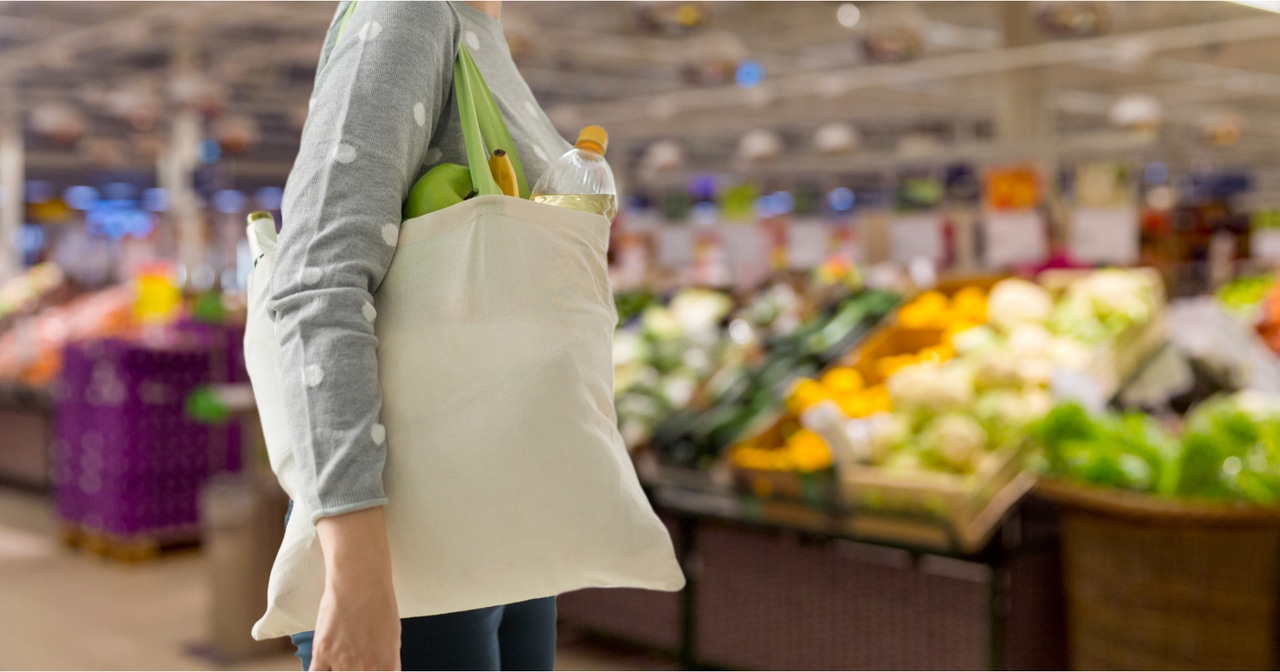Majority of Shoppers Say Retailers Could Do More To Be SustainableMajority of Shoppers Say Retailers Could Do More To Be Sustainable
Research shows 55% of adults would be more loyal to a grocer if they perceived the business to be green. Retail Insight research shows that 55% of adults would be more loyal to a grocery store if they perceived the business to be green.

The call for sustainable products and practices is growing, but a majority of U.S. shoppers think grocery stores aren’t doing enough to be more environmentally friendly, recent research from Retail Insight finds.
The study, conducted on behalf of Retail Insight by Savanta during January 2022, found that 77% of the 1,059 U.S. adults surveyed have tried to be more sustainable in their consumption habits in the past 12 months, with that percentage increasing to 88% among 25- to 34-year-olds.
Furthermore, nearly half (49%) of all respondents said they’d pay a premium for goods that were “green,” and more than half (52%) would be happy for the price of their weekly shop to be higher if it meant helping the environment.
Despite this rising consumer demand, U.S. shoppers still feel retailers aren’t doing, Retail Insight said, with more than two thirds (67%) of those surveyed saying retailers could do more to improve their sustainability credentials. Only 6% said supermarkets were doing all they could to be environmentally friendly.
Mistrust around sustainability claims also caused concern for U.S. shoppers, with 54% believing that too often grocers merely paid lip-service to sustainable initiatives, with just 6% believing supermarkets’ sustainability programs were driven out of a genuine desire to help the planet.
“Going green goes beyond grand gestures—often the biggest sustainability wins can be found in the analysis of granular data and the application of cognitive technology,” Paul Boyle, CEO of Retail Insight, said in a release. “Take, for example, food waste—currently 12% of retailers do not implement markdowns, wasting thousands of tons of food that could otherwise have been consumed by shoppers and that ends up in landfill. To add to this, 9/10 of these retailers who apply markdowns to expiring products were using static discounting, with just a fraction leveraging dynamic markdown technology. By using artificial intelligence (AI) to dynamically discount surplus food, prices are optimized to increase sell-through, whilst maximizing margin and eliminating waste to reduce the retailer’s carbon footprint.”
Sixty-nine percent of those surveyed by Retail Insight said there was not enough of a focus on the role of reducing food waste in grocery stores’ sustainability targets.
But one way grocers have worked to address this issue is through partnerships with Flashfood, with SpartanNash being the most recent to allow its customers to use the Flashfood app to purchase items nearing their best-by date at discounted prices. Stop & Shop, Giant Food and Meijer also have partnerships with Flashfood.
See also: 7 Grocers on a Sustainability Mission
Aside from food waste, consumers are also concerned with the sustainability of packaging: Seven in 10 of shoppers said food retailers still sell goods with excessive or unnecessary packaging, Retail Insight found. Furthermore, 55% said retailers had not put sufficient focus on reducing food miles, and 56% said more could be done to create greener supply chains.
“It’s now more important than ever that grocers’ sustainability initiatives go beyond the rhetoric. Consumers are voting with their feet—and their wallets—and are actively choosing brands who are genuinely committed to reducing their environmental impact on the planet,” Boyle said. “And this isn’t just impacting sales, it’s redefining customer loyalty; our research shows that 55% of shoppers would be more loyal to a grocery store brands if they perceived the business to be green.”
Retail Insight provides software analytics solutions for retailers and CPGs to help grow sales and drive profitability. Its global headquarters are in London.
About the Author
You May Also Like






